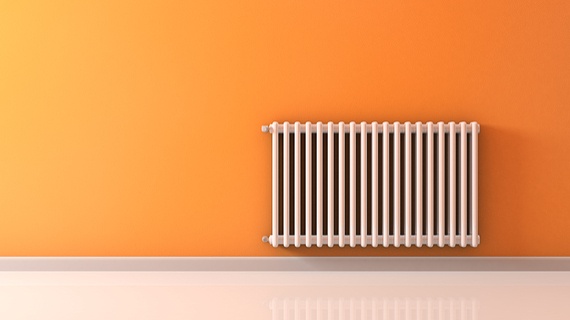
As we head into the thick of winter, you’ll need more than a blanket to keep warm. This is especially true in facilities such as care homes, where many residents may be vulnerable to cold weather. It is therefore up to facilities managers and carers to ensure that their building’s heating system is working effectively, and that residents are comfortable and safe.
It’s estimated that as many as 45% of heating systems in the UK are not performing efficiently, which can both detract from this comfort and add significantly to your winter energy bills. Here, we’ll explore the reasons behind an underperforming system, and what can be done to prevent it.
Why your central heating is underperforming
The reason behind an underperforming central heating system could be down to a simple mechanical fault. However, it could also be the result of something slightly more sinister.
Specifically, problems can arise if you fail to treat the water in your heating system. This negligence can result in a build-up of micro-organisms, scale, sludge and slime in pipes and radiators, which in turn leads to system blockages, damage to pumps and an overall reduction in thermal efficiency.
The danger of micro-organisms in your water system
The organisms that could be affecting the efficiency of your water system include pseudomonas, fungi and algae. Some of these will produce sulphuric acid that corrodes pipes, and slime that clogs the system.
Another particularly harmful, pathogenic bacteria common in man-made water systems is legionella. The organic matter of sludge and slime within the pipes provides nutrients for it to grow, and the warmer temperature of the water further allows it to reproduce and multiply. If the bacteria is inhaled, it can lead to Legionnaires’ disease – a potentially fatal form of pneumonia.
How to treat your water system for better central heating efficiency
Fortunately, there is a way to remove these harmful organisms from your water system, improve your central heating efficiency, and ultimately save money. It involves a fairly straightforward treatment:
- Step one: The first step is to analyse your heating system by sampling the quality of your water.
- Step two: The system will then be drained and flushed under pressure using a cleaning agent, and dosed with water treatment chemicals such as corrosion inhibitors, biocides and anti-scaling agents.
- Step three: To keep your heating system working efficiently over time, you’ll need to maintain the treatment and carry out regular checks for contaminant build-up.
Whilst it is possible for organisations to implement these procedures in-house, it is usually safer to hire a professional water treatment company that has the right level of knowledge and industry experience, and can implement a plan that follows the COSHH regulations and is of minimal disruption to your staff and residents.
As described above, the first step to an improved heating system is to have your water tested for destructive microorganisms. This involves an on-site analysis of your water for pseudomonas, fungi and algae, and we’ll also propose a course of action if we detect any contaminants.
Ready to get started? Click the link below and see if you could save money on your central heating system.








